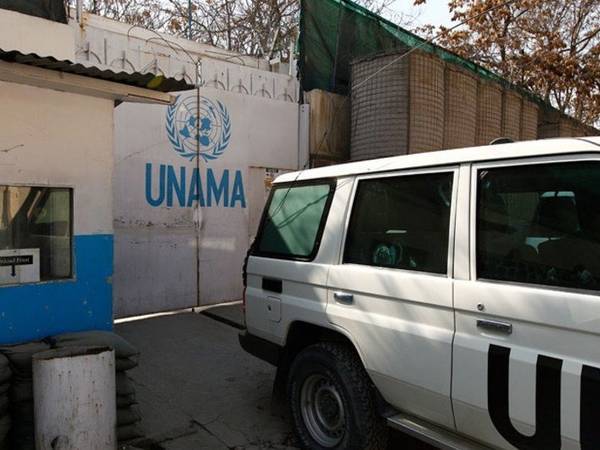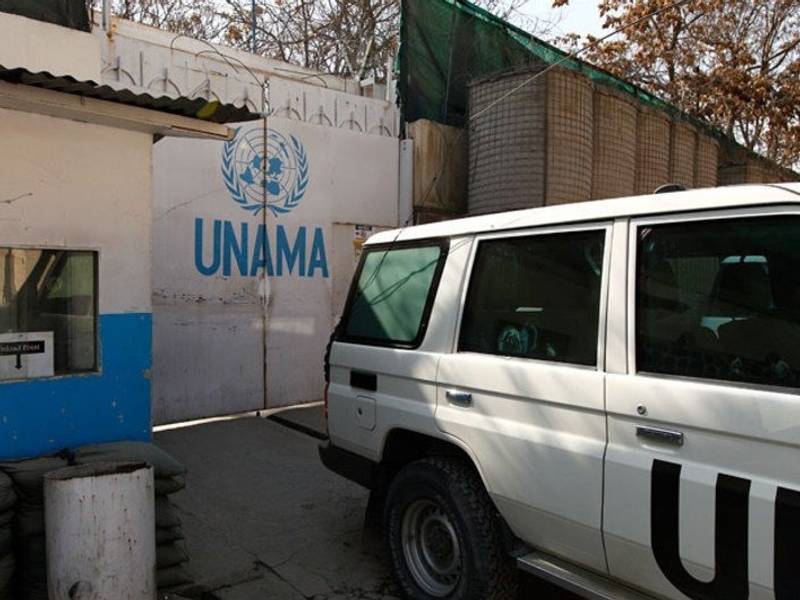The United Nations Assistance Mission in Afghanistan (UNAMA) said it continues to engage with all Afghan stakeholders in support of inclusive governance, human rights, and international cooperation.
In a statement issued on Friday, 24 October, to mark United Nations Day, UNAMA said its engagement aims to “safeguard human rights and strengthen global support for the Afghan people.” However, the mission did not specify which groups it has engaged with, at what level, or whether its dialogue includes Taliban opponents.
For the past four years, the international community and regional powers have urged the Taliban to form an inclusive government, calls the group has repeatedly ignored.
Indrika Ratwatte, the UN’s Humanitarian Coordinator in Afghanistan, urged renewed global solidarity, saying: “Together, let us uphold the promise of the UN Charter and work toward a peaceful, prosperous, inclusive, and sustainable Afghanistan.”
Situation of Women and Girls Worsening
UNAMA expressed deep concern over the continuing deterioration of conditions for women and girls under Taliban rule. It said the Taliban’s restrictions on education, employment, and public participation undermine the fundamental rights of Afghan citizens and the country’s future prospects.
The statement reaffirmed the UN’s enduring commitment to peace, security, human rights, justice, and sustainable development, noting that the organisation has stood by Afghans “through both progress and hardship”, from peacebuilding and institutional reform to life-saving humanitarian aid.
UN’s Role in Afghanistan
UNAMA said the UN’s agencies, funds, and programmes have enabled millions of Afghans to gain access to education, healthcare, clean water, and livelihoods. It underscored the UN’s crucial role in protecting the rights of women and girls and its ongoing principled engagement to support Afghanistan’s recovery.
However, the mission warned that Afghanistan’s humanitarian crisis remains among the world’s most severe, with roughly two-thirds of the population in need of assistance. Declining donor funding, it said, threatens the delivery of essential services. The statement also highlighted how the return of millions of migrants and the impacts of climate change have further deepened Afghans’ vulnerability.
Georgette Gagnon, the UN Deputy Special Representative and head of UNAMA, said Afghanistan cannot achieve lasting stability and development on its own. “This 80th anniversary reminds us of the power and necessity of multilateralism and collective action,” she said.
“Regional cooperation, international engagement, and a shared commitment to dialogue and diplomacy are essential,” Gagnon added. “The United Nations remains a vital platform for bringing nations together to address common challenges and support the aspirations of the Afghan people.”
UNAMA reaffirmed that, under its Security Council mandate, it will continue to engage with all Afghan stakeholders to promote inclusive governance, protect human rights, and strengthen international support for Afghanistan.
The United Nations was formally established on 24 October 1945, following the ratification of its Charter by founding members. The UN Assistance Mission in Afghanistan (UNAMA) was created in March 2002 through a Security Council resolution, with a mandate to coordinate international support for peace and reconstruction in the country.

